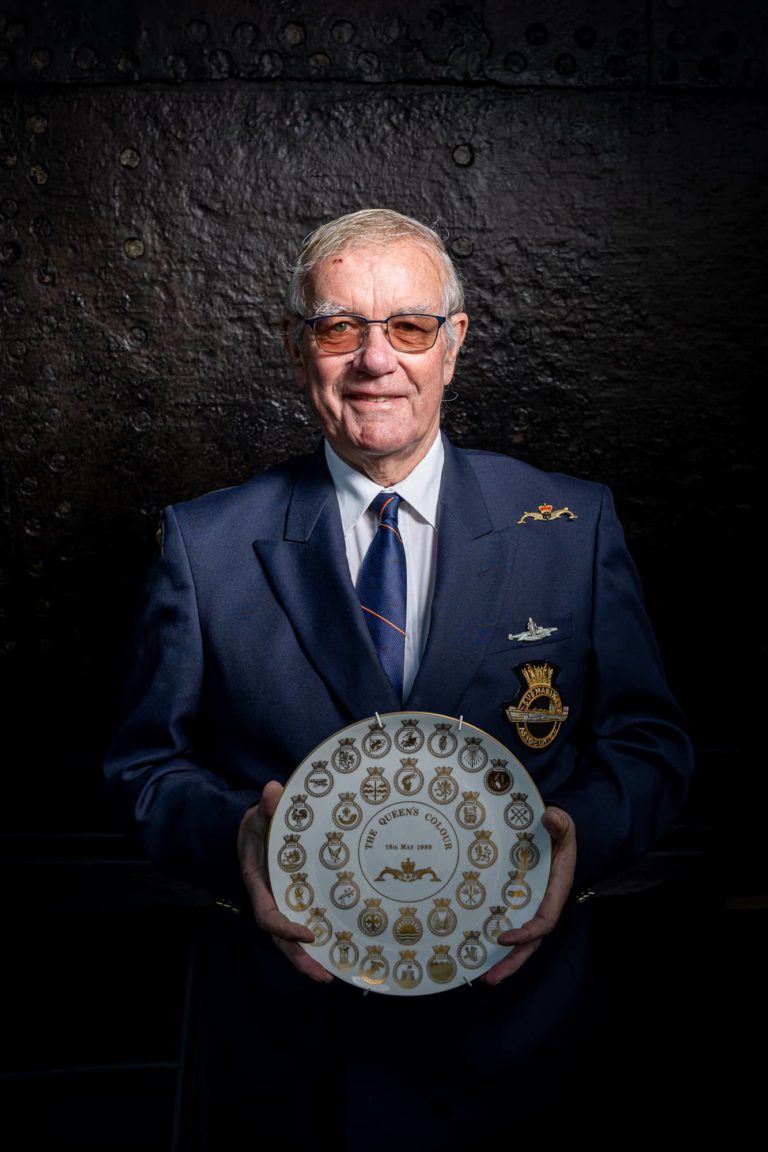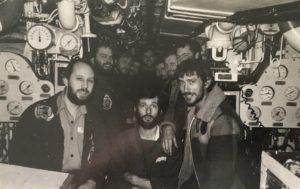Ron Gordon – What happens when you’re not on patrol
Simon: When you’re not on a patrol, you’re back at Base or … it’s not like they’d say, “Oh, go and have a holiday.”
No, it’s … the routine was there are four submarines in all. One’s in Refit all the time, one’s in a big D and D, another one’s alongside …
Simon What’s the abbreviation?
An Engineering Development. You’re just doing maintenance period, but lots of big deep maintenance, a deep maintenance period. And so, you had the one submarine that would go on patrol, and once it was out on a certain area, it then becomes the submarine that’s on patrol and the other submarine’s coming back. So, they never pass each other, they don’t say anything ‘cos one has got to be dived and not detected. Once that’s happened, then the other one can come in on surface and come alongside.
So, if you’ve come off patrol, you’d come into Coulport, which is the Armament Depot where they keep the missiles under the hill opposite Faslane. Massive big Depot. All these rockets are under the hill. You’d offload so many missiles.
You were never allowed to say how many you offloaded ‘cos it was all kept secret, and then the next five days you’re handing over to the other crew, and the other crew then would go on crew, and you would go off crew.
That on crew would then take the submarine back round to Faslane and then they would start to do all the maintenance and you would support them.
As the off crew, you’d come onboard and support them ‘cos you knew what defects … you’d reported all the defects. You’d know what defects had to be sorted so you’d go onboard to help them. Then after they’d gone through maybe a month alongside, or two months, the other submarine is due to come back, that submarine goes out and you’re left there as your crew.
Your opposite crew have gone to sea now and they’re away for two months. So, you then go on two weeks leave and then when you come back, you’re then working within the Workshops there, so you’re doing day work. And you do all sorts of different work. Some of the stuff we used to do, we used to work for this Officer, the guy who I worked for when I was in Surface Fleet, my Divisional Officer we worked for him ‘cos he was working for a charity organisation, and they would get all these old toys come in we’d do them up and then the Lions Groups would give them to the kids like myself.
Myself had been in the Council Estate, ‘cos that’s what we used to get from the Lions Group and we had Christmas presents, they used to bring round the parcel to us. So, we used to do work like that. And you’d sometimes finish at midday and go home, so you spent a lot of time at home.







